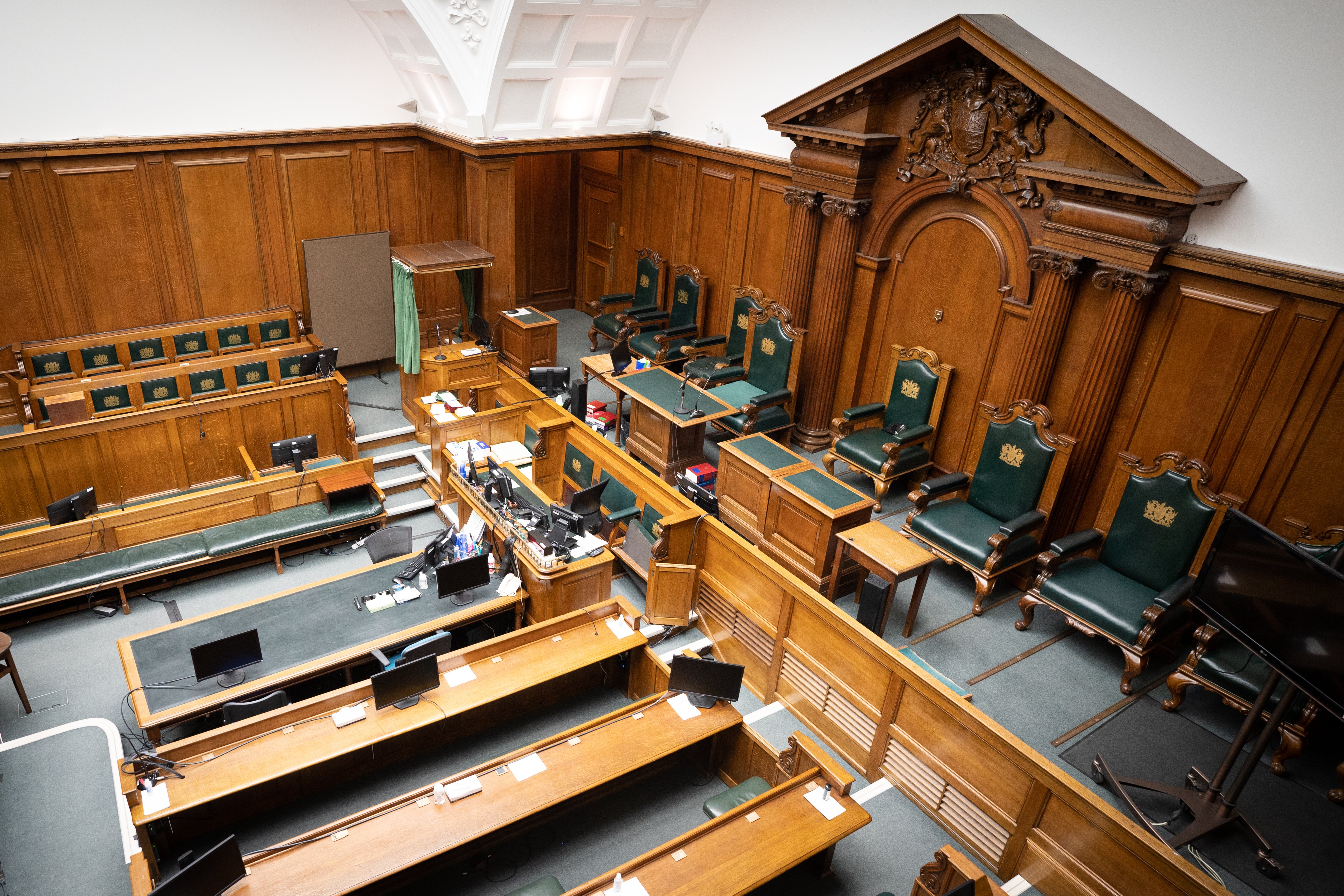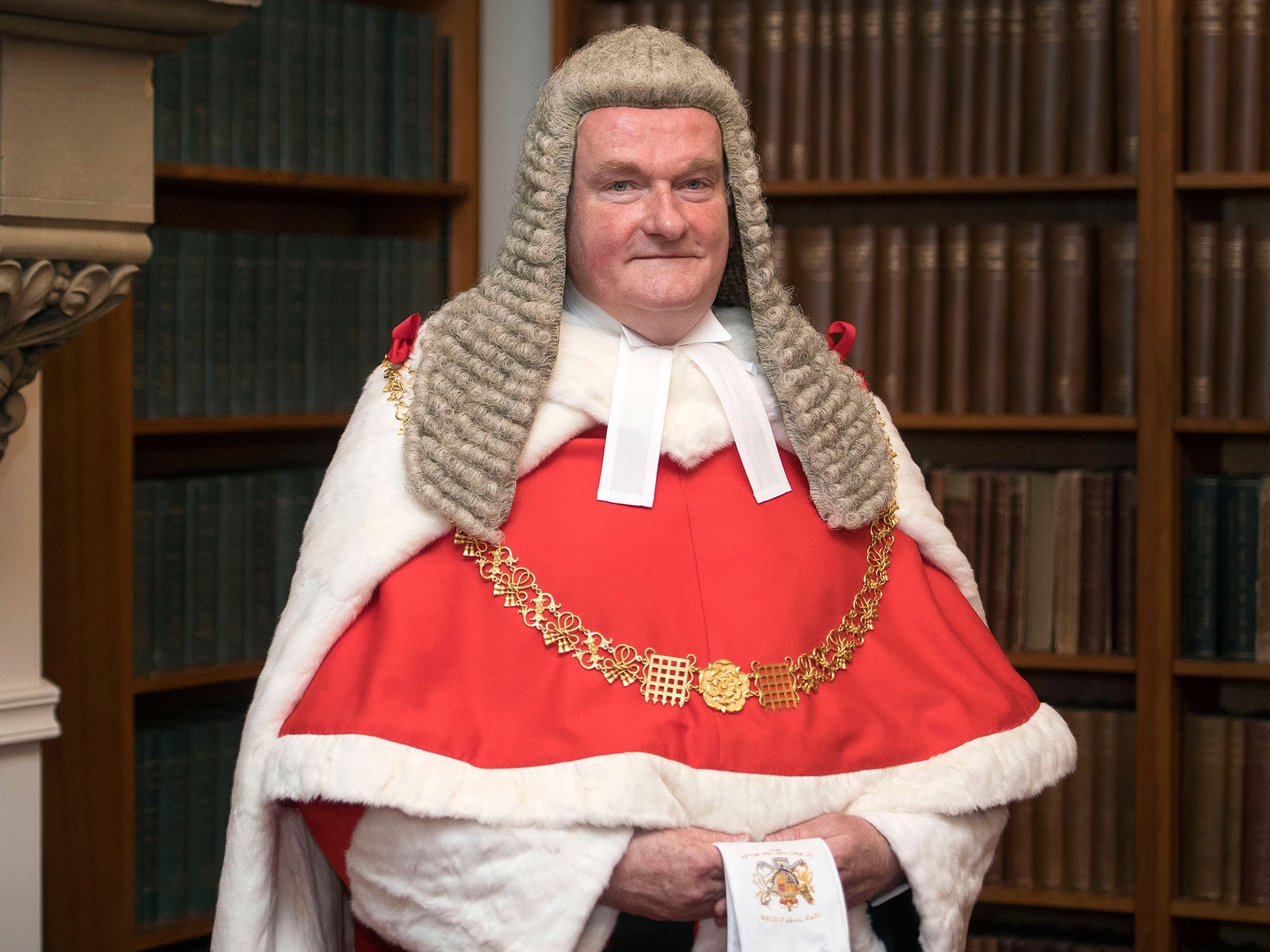Court sentencing hearings to be shown on television for first time in England and Wales
Man who stabbed his grandfather to death expected to be the first criminal to have Old Bailey sentencing broadcast

Your support helps us to tell the story
From reproductive rights to climate change to Big Tech, The Independent is on the ground when the story is developing. Whether it's investigating the financials of Elon Musk's pro-Trump PAC or producing our latest documentary, 'The A Word', which shines a light on the American women fighting for reproductive rights, we know how important it is to parse out the facts from the messaging.
At such a critical moment in US history, we need reporters on the ground. Your donation allows us to keep sending journalists to speak to both sides of the story.
The Independent is trusted by Americans across the entire political spectrum. And unlike many other quality news outlets, we choose not to lock Americans out of our reporting and analysis with paywalls. We believe quality journalism should be available to everyone, paid for by those who can afford it.
Your support makes all the difference.People will be able to watch criminals being jailed on television for the first time at some of Britain’s most high-profile courts.
Ben Oliver, who stabbed his 74-year-old grandfather to death, is expected to become the first offender to have his sentencing broadcast on Thursday.
The hearing will take place at London’s Old Bailey, which is one of the courts to allow applications for filming from the BBC, Sky News, ITN and the PA news agency.
A new law to allow the change was introduced in 2020, but the scheme was delayed by the Covid pandemic.
With concerns having been expressed for the protection of victims, witnesses and jurors, only the judge will be filmed.
Dame Vera Baird QC, the victims’ commissioner for England and Wales, said transparency was key to confidence in the justice system.
“Allowing cameras into courts to film sentencing remarks is a first step and an important milestone in achieving this, but its implementation requires careful consideration of the victim and their needs,” she added.
“Judges will need to explain the reasoning behind their sentencing decisions in a way that is comprehensible to the public and not just legal professionals.”
The move has been supported by the lord chief justice of England and Wales, Lord Burnett of Maldon, who hailed it as a “very positive” step in promoting open justice.
“We all hoped that we would start filming sentencing remarks in high-profile criminal cases in the summer of 2020 and, were it not for Covid, that would have happened – but now it is happening,” he said.
“I think it’s an exciting development, because it will help the public to understand how and why criminals get the sentences they do in these very high-profile cases.”
Lord Burnett has stopped short of advocating televising trials like those seen in the US, saying: “My own but fairly strong view is that what we see happening around the world illustrates why that can be quite damaging.”
Filming is currently permitted in the Supreme Court and some Court of Appeal hearings.

The Ministry of Justice said it hoped that allowing the public to see and hear judges explain the reasoning behind their sentences would give a better understanding of how decisions that appear controversial are reached.
Dominic Raab, the justice secretary, said: “Opening up the courtroom to cameras to film the sentencing of some of the country’s most serious offenders will improve transparency and reinforce confidence in the justice system.”
When the proposals were announced, some legal bodies voiced concerns about a potential backlash against judges if a sentence was not popular with the public.
But the Bar Council welcomed the change on Wednesday, saying it would “help build confidence in an open and fair justice system”.
Chair Mark Fenhalls QC added: “The public will now be able to see and hear how judges apply laws passed by parliament and Sentencing Council guidelines, and understand the reasons for a particular sentence.”
The Law Society, which represents solicitors, said filming should continue to be done “in a sensitive manner”.
The sentencing remarks of any case recorded will be hosted by Sky News on a dedicated YouTube channel, with a 10-second delay when broadcasting live to avoid any breach of restrictions or errors.


